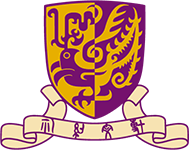Yan Shigu 顏師古is a historian and master of Confucian Classics (jing經) in the period of late Sui dynasty and early Tang dynasty. However, his achievements of Confucian Classics was always neglected by previous scholars. In view of this, the present project will survey Yan Shigu’s works, i.e. Commentaries of Hanshu漢書注, Kuangmiuzhengsu匡謬正俗 and Ji Jiu Pian Zhu急就篇注, in order to study his achievements of Confucian Classics in Tang dynasty:
First, investigate the quotations that Yan Shigu cited from the Classics and its commentaries in his commentaries on the Hanshu. Ban Gu, the historian who compiled the Hanshu, was a scholar of the Han dynasty steeped in the classical studies. Yan Shigu followed Ban's practice of citing the Classics in his writings. Yan's quotations fall into two general categories: (1) his interpretation of Hanshu's quotations from the Classics, and (2) his own quotations from the Classics to explain texts in the Hanshu. The study of Yan’s quotations is also a way to discover the other explanation of the Classics.
Second, since Yan Shigu was the grandson of Yan Zhitui顏之推, author of the Yanshi jiaxun顏氏家訓, and nephew of Yan Youqin顏遊秦, author of the Hanshu queyi漢書抉疑, it is only natural that his family had a profound influence on his works. A comparison between Yan Shigu and his ancestors will be done in this project. The development of the commentaries of Classics from Six dynasty to Tang dynasty will also discuss.
Third, the role of Yan Shigu in the edit of the Wujingzhengyi五經正義. This project will discuss the difference between Yan Shigu’s works and Wujingzhengyi in the commentaries of the Classics.
Fourth, Lu Deming陸德明’s Jingdianshiwen經典釋文 is a phonetic explanation monograph annotating, by phonetic notation, 14 classic works in pre-Qin dynasty. This project will investigate different explanation of the Classics between Lu Deming and Yan Shigu.
Fifth, Kuangmiuzhengsu reflects the Mainstream Characters Concept 正字學of Yan Shigu. This project will also study the character concept of Yan Shigu from his works, such as Wujing Dingben五經定本, Yanshiziyang顏氏字樣, and also the Commentaries of Hanshu.
Finally, compares the same chapters or passages found in the Commentaries of Hanshu, the Three Commentaries on the Shiji史記三家注, Li Shan’s commentary on the Wenxuan文選李善注, so to discuss the citations of the Classics and its commentaries within these works.
Despite their preeminence as semanticists and textual critics whose scholarship is still relevant to this day, the Qing scholar Wang Niansun and his son Wang Yinzhi have been little studied outside the contexts of their hitherto published works, namely Guangya shuzheng (《廣雅疏證》), Dushu zazhi (《讀書雜志》), Jingyi shuwen (《經義述聞》) and Jingzhuan shici (《經傳釋詞》). This is largely due to the lack of research materials. The problem has been partly addressed with the study of Wang Niansun’s critical editions of eight ancient titles under the “Research Project on the Newly-discovered Ancient Texts Collated by Wang Niansun” that commenced in 2010. To further expand this corpus of raw materials, this two-year project is proposed to collate and study another fourteen works by the two scholars, eight of which are currently in the form of manuscripts or copies housed in libraries in Mainland China and Taiwan and the other six are newly discovered critical editions of ancient titles.
Mostly unpublished previously, these fourteen titles will be compiled into Wang Niansun Wang Yinzhi gaoben chaoben jiaoben ziliao huibian (《王念孫、王引之稿本、抄本、校本資料彙編》A Compendium of Manuscripts, Copies and Critical Editions by Wang Niansun and Wang Yinzhi) to provide otherwise unavailable materials for further research on the two Wangs’ contribution to phonology, semantics, textual criticism and annotation. Other research efforts will include a comparative study of the two scholars’ published works, reconstruction of Wang Niansun’s re-categorization of ancient sounds and rhymes, reconstruction of Wang Yinzhi’s production of juan 10 to Guangya shuzheng (《廣雅疏證》), and the pair’s textual criticism of Zhou li (《周禮》), Jiaoshi yilin (《焦氏易林》), Shuowen jiezi tongshi (《說文解字通釋》), Sunzi zhu(《孫子注》) , Chuci (《楚辭》) and Beitang shuchao(《北堂書鈔》). Attempts will also be made to compare and contrast the two scholars’ scholarly pursuits and to tackle the issue of authorship between them in the context of academic history. To facilitate further studies on the two Wangs, these outputs will be progressively uploaded to the project’s website for easy access.

